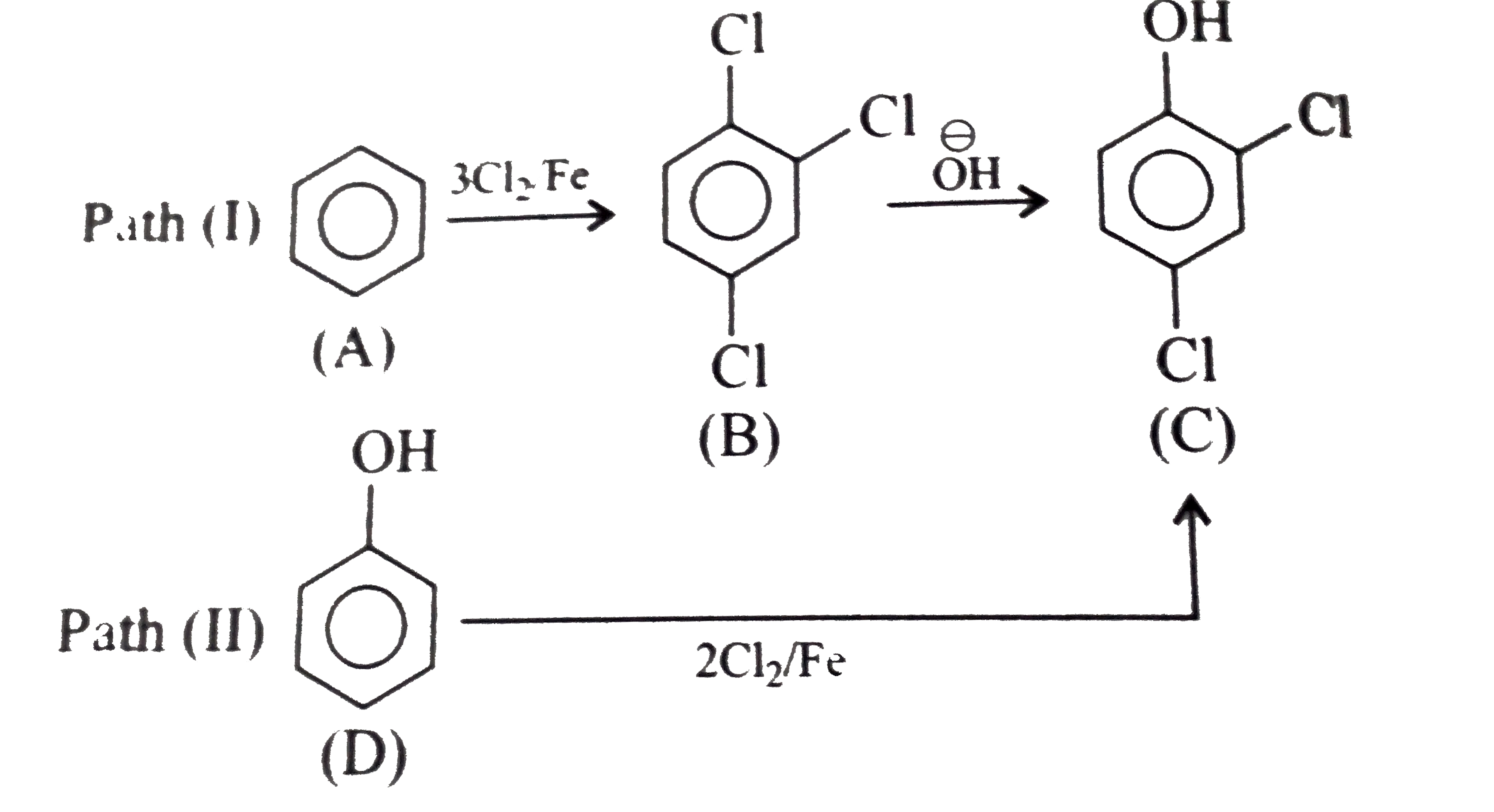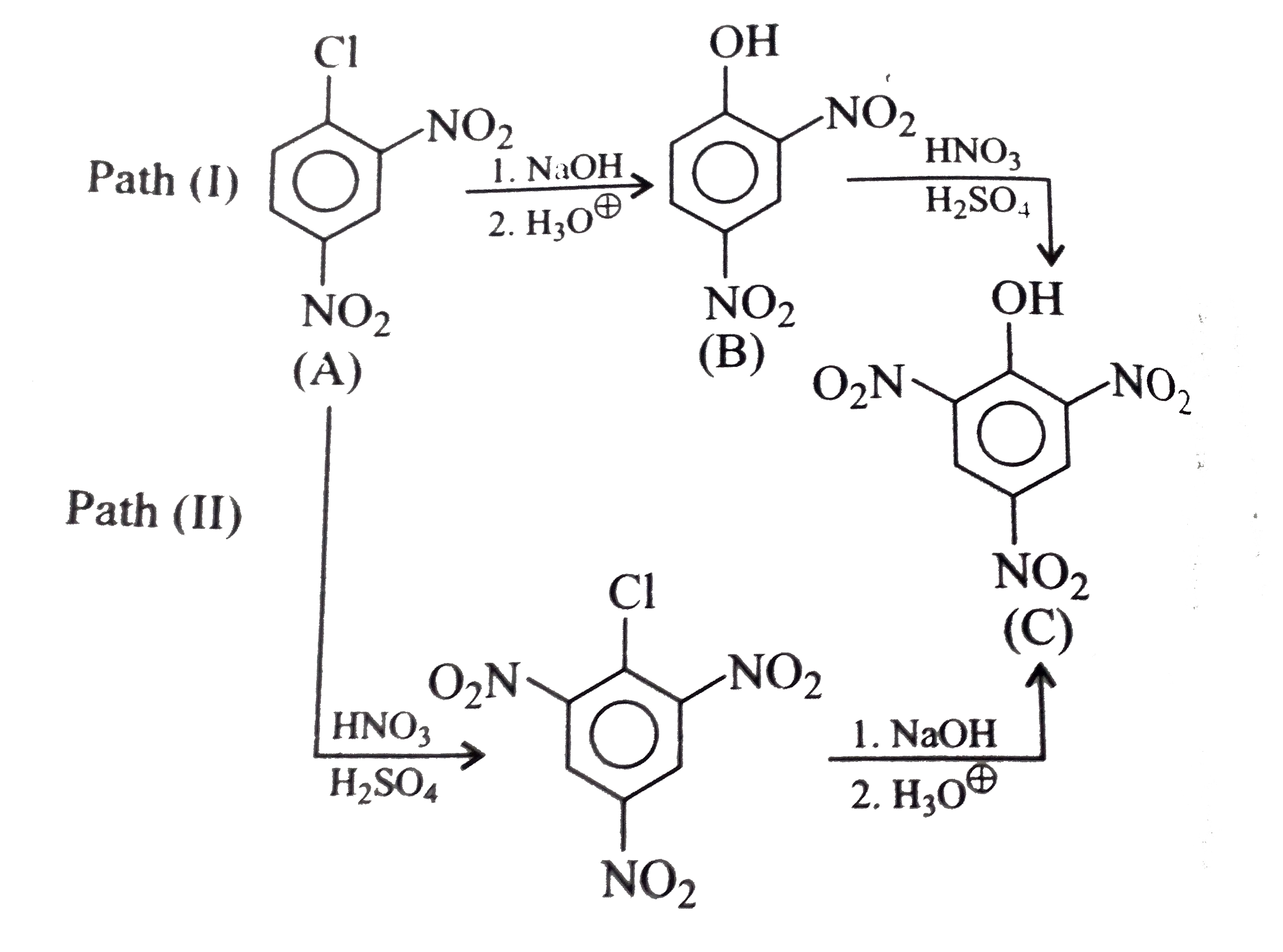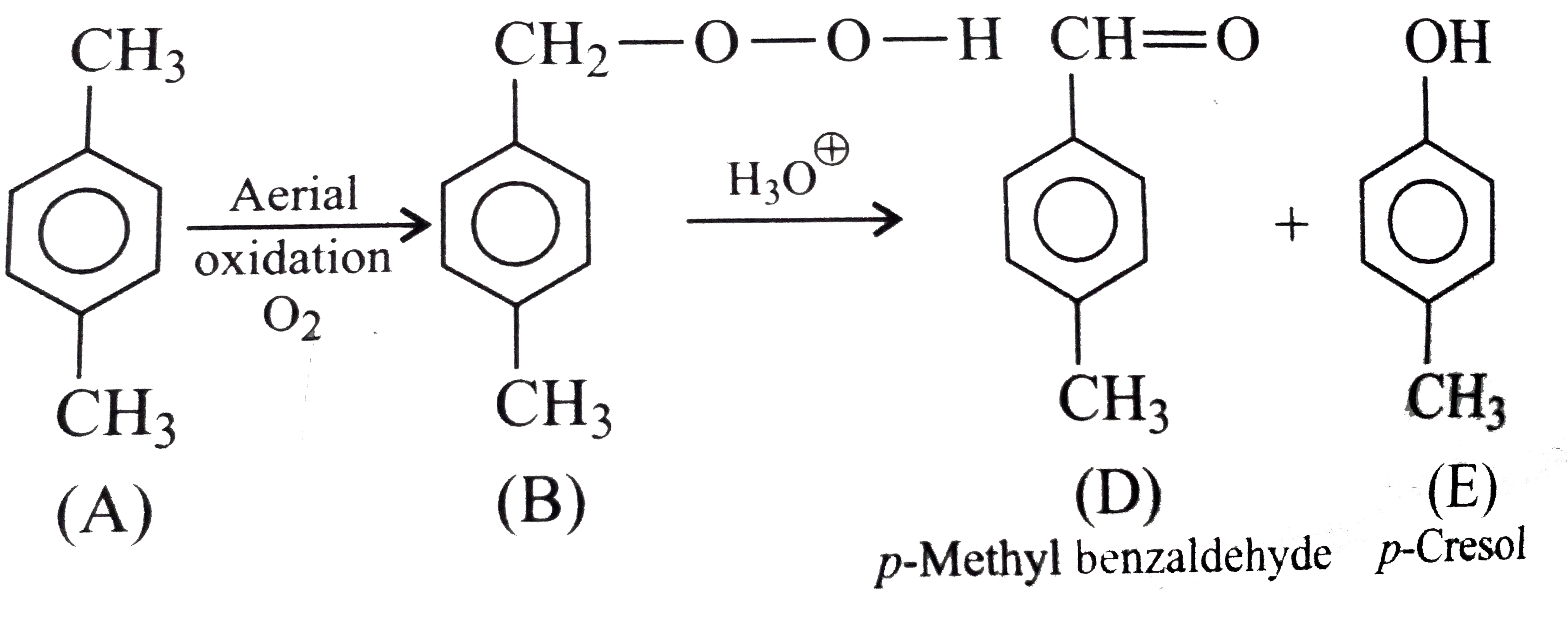Which of the following statement is correct about halobenzene?
A
lt are more reactive than haloalkane
B
C-X bond has always single bond character
C
C-X bond in haloarene is more polar than C-X bond in haloalkane
D
Never undergoes SN1 reaction
Text Solution
The correct Answer is:D
|
Topper's Solved these Questions
- GENERAL PRINCIPLES & PROCESSES OF ISOLATION OF ELEMENTSBook:NIKITA PUBLICATIONChapter:GENERAL PRINCIPLES & PROCESSES OF ISOLATION OF ELEMENTSExercise:Multiple choice questions
Explore 117 Videos
- MCQs FROM PREVIOUS BOARD QUESTION PAPERS Book:NIKITA PUBLICATIONChapter:MCQs FROM PREVIOUS BOARD QUESTION PAPERS Exercise:Question Paper- MHT-CET 2018
Explore 50 Videos
Similar Questions
Knowledge Check
Which of the following statements is correct about the following reactions ?
 .A(B) is obtained by elimination reaction.B(c) is obtained by substitution reaction.CThe molecular formula of (B) is C3H6 and that of (c) is C3H8O.D(B) is an isomer of ethyl methyl ether, while (c) is the dehydrated compound of (B).
.A(B) is obtained by elimination reaction.B(c) is obtained by substitution reaction.CThe molecular formula of (B) is C3H6 and that of (c) is C3H8O.D(B) is an isomer of ethyl methyl ether, while (c) is the dehydrated compound of (B).Which of the following statement is correct about the atom of an element ?
Aan atom can have only protons and neutrons but no electronsBan atom can have only electrons and neutrons but no protonsCan atom can have only electron and proton but no neutronDan atom must always have a proton, neutron and electronWhich of the following statements is correct about Social Science?
ASocial Science is not concerned with diverse concerns of society.BSocial Science emphasises homogeneity and rituals.CSocial Science is a subjectivist discipline.DSocial Science lays the foundation for an analytical and creative mindset.
Which of the following statements is/are correct about the following reaction ?

View SolutionWhich of the following statements is/are correct about the following is/are correct about the following reactions ?

View SolutionWhich of the following statements is/are correct about the following reactions ?

View SolutionWhich of the following statements is/are correct about the following reaction ?

View SolutionWhich of the following statements is/are correct about the following reaction ?

View Solution

